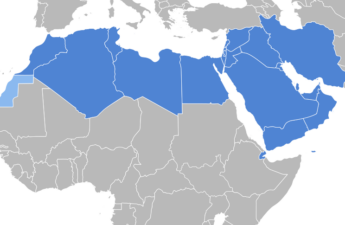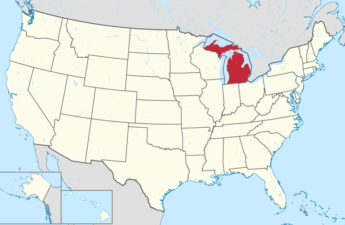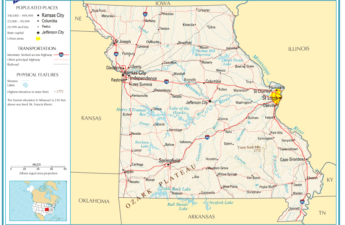Category: Politics
Census change will lead to more data on health of Middle Eastern, North African people in US
For decades, U.S. residents with heritage from the Middle East and North Africa, which is known internationally as the MENA region, have been classified by the government as white. The grouping masked differences in income, health, housing and other important markers.
10 Medicaid holdout states scramble to improve health coverage
The Republican-led states that have refused to expand Medicaid are trying a variety of strategies to save struggling hospitals and cover more people without full expansion, which was one of the key provisions of the Affordable Care Act.
Federal shutdown should not immediately threaten food aid for WA mothers and kids
WIC provides food assistance to mothers and children up to 5 years old. In July, about 130,400 people received benefits from the program in Washington, including around 25,600 infants and 76,400 kids older than 1 year.
There’s no age limit for politicians − as people live longer, should that change?
Joe Biden, Mitch McConnell and Diane Feinstein are all over 80 years old, joining a number of politicians who are staying in office well past their 70s.
How the Mixed Messaging of Vaccine Skeptics Sows Seeds of Doubt
By Darius TahirKaiser Health News It was a late-spring House of Representatives hearing, where members of Congress and attendees hoped to learn lessons from the pandemic. Witness Marty Makary made a plea. “I want to thank you for your attempts…
Michigan Legislature Asks Court to Allow Enforcement of 1931 Abortion Ban
Michigan’s pre-Roe statute would expose health care professionals in the state to felony charges and fines for performing an abortion except to save the life of the patient. It also would criminalize advertising or selling medications to induce an abortion.
New Washington laws on guns, shooter drills, abortion take effect Thursday
Dovetailing with the hot-button issues of gun violence and abortion in the news recently, several bills passed by the Washington State Legislature this year will go into effect on Thursday.
Birth Control Limits to Follow Abortion Bans?
Many advocates on reproductive health issues think U.S. Supreme Court Justice Samuel Alito’s draft opinion overturning Roe v. Wade will further fuel some conservatives’ efforts to limit access to birth control. Although Alito specifically said in the draft that the ruling would not pertain to other rights courts also grounded in privacy, activists worry opponents will marshal his argument on privacy to attack birth control or gay marriage, for example.
Impending demise of Roe v. Wade puts a spotlight on a major privacy risk: Your phone reveals more about you than you think
Using a maps app to plan a route, sending terms to a search engine and chatting online are ways that people actively share their personal data. But mobile devices share far more data than just what their users say or type. They share information with the network about whom people contacted, when they did so, how long the communication lasted and what type of device was used.
The Fractious Evolution of Pediatric Transgender Medicine
Pediatric transgender medicine is a new field with a lot of questions yet to be answered by science. What is the long-term impact of blocking puberty on a young person’s health? Can practitioners correctly determine which youngsters will still identify as trans when they are adults? Do the psychological assessments contribute to children’s suffering by delaying access to puberty blockers and hormones? Why has the number of teens coming forward to receive transgender medical care, particularly those assigned female at birth, risen so dramatically in recent years?
As Politics Infects Public Health, Private Companies Profit
For some counties and cities that share a public health agency with other local governments, differences over mask mandates, business restrictions, and other covid preventive measures have strained those partnerships.
Missouri’s War on Public Health Shows Extent of National Rift
At least 1 in 5 Americans live in places that had lost their top local public health official amid a wave of threats to the profession and chronic stress that led to firings, resignations, and retirements since the pandemic began. Such blows endanger the public health system’s ability to respond to other issues in the future, public health officials said.
Justices Block Broad Worker Vaccine Requirement, Allow Health Worker Mandate to Proceed
The OSHA rules are opposed by many business groups, led by the small business advocacy organization the National Federation of Independent Business. It argued that allowing the rules to take effect would leave businesses “irreparably harmed,” both by the costs of compliance and the possibility that workers would quit rather than accept the vaccine.
Compliance and Defiance: States React to New CDC Mask Guidelines
CDC’s reversal on mask recommendations led to more disagreement between Republican and Democratic politicians over masks and other pandemic-related public health precautions.
GOP Legislators in Missouri Oppose Vaccine Efforts as State Becomes COVID Hotspot
When State Rep. Bill Kidd, from the Kansas City suburbs, revealed that he has been infected by the coronavirus, he wrote: “No, we didn’t get the vaccine . . . We’re Republicans”













